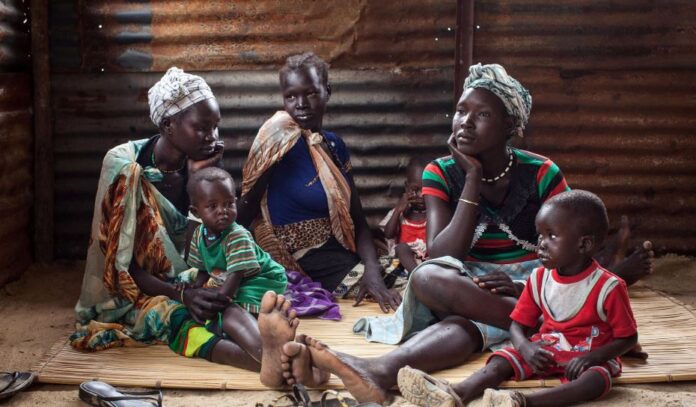In a firm rebuttal, the Sudanese government on Sunday rejected a United Nations-backed report claiming that famine has spread to five areas within the strife-torn nation. The Integrated Food Security Phase Classification (IPC) report, utilized by UN agencies, had previously highlighted the dire hunger situation in Sudan, exacerbated by the ongoing conflict between the Sudanese army and the paramilitary Rapid Support Forces (RSF).
The IPC’s recent analysis indicated that the war had led to famine conditions for approximately 638,000 individuals, with an additional 8.1 million teetering on the edge of mass starvation. However, the Sudanese foreign ministry issued a statement vehemently opposing the IPC’s findings, labeling the report as “essentially speculative” and criticizing the IPC for alleged procedural and transparency shortcomings.
The government claimed that the IPC lacked access to the latest field data and did not involve Sudan’s technical team in the final review process before the report’s release. The IPC, which positions itself as providing “evidence-based” and “rigorous, neutral analysis” on its website, has not yet responded to these allegations.
This rejection comes after the IPC had already declared a famine at Zamzam camp near El-Fasher in Darfur on August 1. In response, during a press conference in Port Sudan, the government’s humanitarian aid commissioner, Salwa Adam Benya, dismissed famine rumors as “pure fabrication,” suggesting that some aid agencies might be exploiting the food crisis to advance political motives.
Also Read: Mozambique Court Confirms Frelimo Victory Amid Protests
The Sudanese government, under the leadership of army chief Abdel Fattah al-Burhan, has been operating from Port Sudan since Khartoum became a battleground in April 2023. The administration has faced criticism for obstructing international food security assessments, creating bureaucratic obstacles for humanitarian efforts, and denying visas to foreign aid workers.
The International Rescue Committee has described Sudan as hosting the “biggest humanitarian crisis ever recorded,” accusing the army of using its recognized government status to block UN and other aid agencies from reaching areas controlled by the RSF. In October, UN-appointed experts condemned both the army and RSF for employing “starvation tactics” and called for an end to aid obstruction.
The World Food Programme warned last month that Sudan could become the site of the largest hunger crisis in recent history, a statement echoed by US Secretary of State Antony Blinken, who highlighted the desperate measures people are taking to survive, like eating grass and peanut shells.
The conflict, which has already claimed tens of thousands of lives, has displaced over 12 million people, with half of Sudan’s population now facing acute food insecurity. The IPC emphasized that only a ceasefire could halt the spread of famine further.
Key Points:
- The Sudanese government has strongly rejected a UN-backed report claiming that famine has spread to five areas of Sudan, calling the report speculative and criticizing its methodology.
- The Integrated Food Security Phase Classification (IPC) reported that the ongoing war between Sudan’s army and the Rapid Support Forces (RSF) has led to famine conditions for 638,000 people, with 8.1 million others at risk of mass starvation.
- The government accused the IPC of not having access to updated field data and failing to consult with Sudanese technical teams before publishing the report.
- Despite the IPC’s earlier declaration of famine in the Zamzam camp in Darfur, Sudanese officials dismissed these claims as “fabrications” and accused some aid agencies of using the food crisis for political leverage.
- Sudan has been facing severe criticism for obstructing humanitarian aid assessments, creating bureaucratic barriers, and blocking visas for foreign aid workers.
- The conflict has displaced over 12 million people, with half of Sudan’s population now facing high levels of acute food insecurity, according to IPC, which stresses that only a ceasefire can prevent the further spread of famine.



